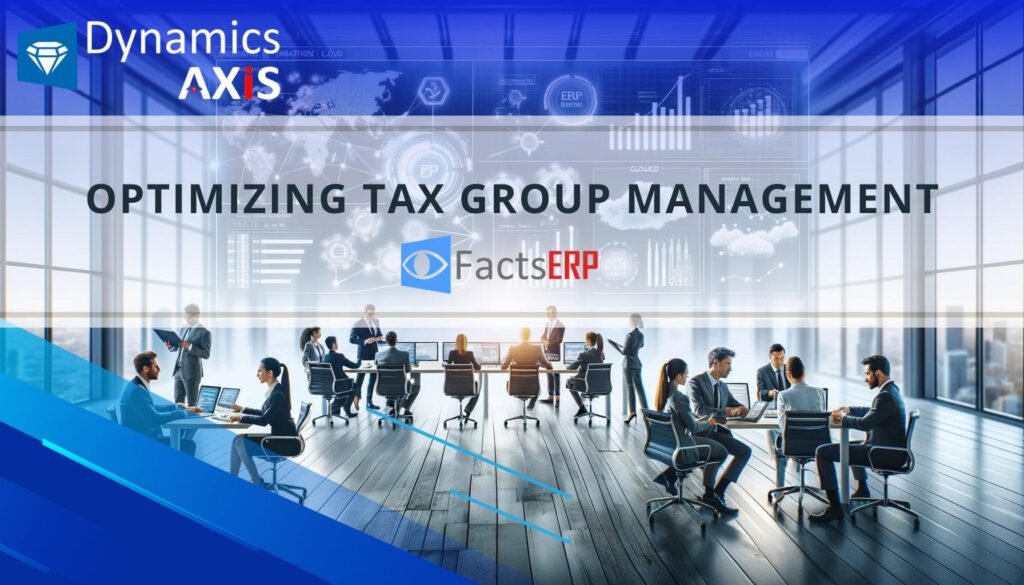Optimizing Corporate Tax Group Management with FactsERP
Optimizing Corporate Tax Group Management with FactsERP

Introduction to Tax Group Dynamics in Modern Businesses
In the rapidly evolving corporate tax landscape of the UAE, understanding and managing tax group structures has become a critical aspect for businesses aiming to optimize their tax compliance and financial consolidation. The introduction of the Corporate Tax Law (Federal Decree-Law No. 47 of 2022) underscores the importance of efficient tax group management. This is where Enterprise Resource Planning (ERP) systems come into play, offering unparalleled support for the intricate requirements of forming and maintaining tax groups, ensuring compliance with the UAE’s Corporate Tax Law.
What is a Corporate Tax Group?
A Tax Group is defined as two or more taxable persons treated as a single taxable entity for corporate tax purposes, according to the conditions outlined in Article 40 of the Corporate Tax Law. Only Resident Persons within the UAE can form a tax group. This structure allows the parent company to file a single tax return for the entire group, simplifying tax administration and enabling income and losses among members to be offset against each other.
Criteria for Forming a Tax Group
For businesses considering the formation of a tax group, several criteria must be met:
- Juridical Person Condition: Both the parent company and subsidiaries must be juridical persons, having a separate legal personality.
- Residency Condition: All members must be resident persons within the UAE.
- Ownership Condition: The parent company must own at least 95% of the share capital and voting rights of each subsidiary, either directly or indirectly.
- Financial Year and Accounting Standards: The parent company and all subsidiaries must share the same financial year and prepare their financial statements using the same accounting standards.
These criteria ensure that the tax group operates cohesively and complies with the UAE Corporate Tax Law, facilitating streamlined tax processes and consolidated financial reporting.
The Role of ERP Systems in Simplifying Tax Group Management
ERP systems provide comprehensive solutions for managing the complex requirements of tax groups. By integrating financial data across subsidiaries, ERP platforms enable businesses to produce consolidated tax returns efficiently, maintain compliance, and leverage strategic insights for informed decision-making.
Key Benefits of Leveraging ERP for Tax Groups
- Consolidated Financial Reporting: Facilitates aggregation of financial data across the group.
- Compliance Management: Automates compliance checks and updates to tax group memberships.
- Operational Efficiency: Reduces administrative tasks, allowing businesses to focus on growth.
- Document Repository: Inbuilt Attachments for storing all the soft copies of important documents.
FactsERP: A Catalyst for Strategic Tax Group Management
The integration of FactsERP into tax group management processes empowers businesses to navigate the complexities of corporate taxation with confidence. By offering a centralized platform for managing tax-related data, FactsERP not only ensure compliance but also provide strategic insights that can lead to more informed decision-making.
Conclusion
In the face of evolving tax legislation, the adoption of an ERP system that caters to the specific needs of tax group management is not just beneficial but essential for businesses looking to maintain a competitive edge. As your trusted provider of ERP solutions accredited by the FTA, we are here to guide you through optimizing your tax group management process, ensuring compliance, and driving efficiency.
Contact us today to discover how FactsERP can transform your tax group management and propel your business towards operational excellence.
